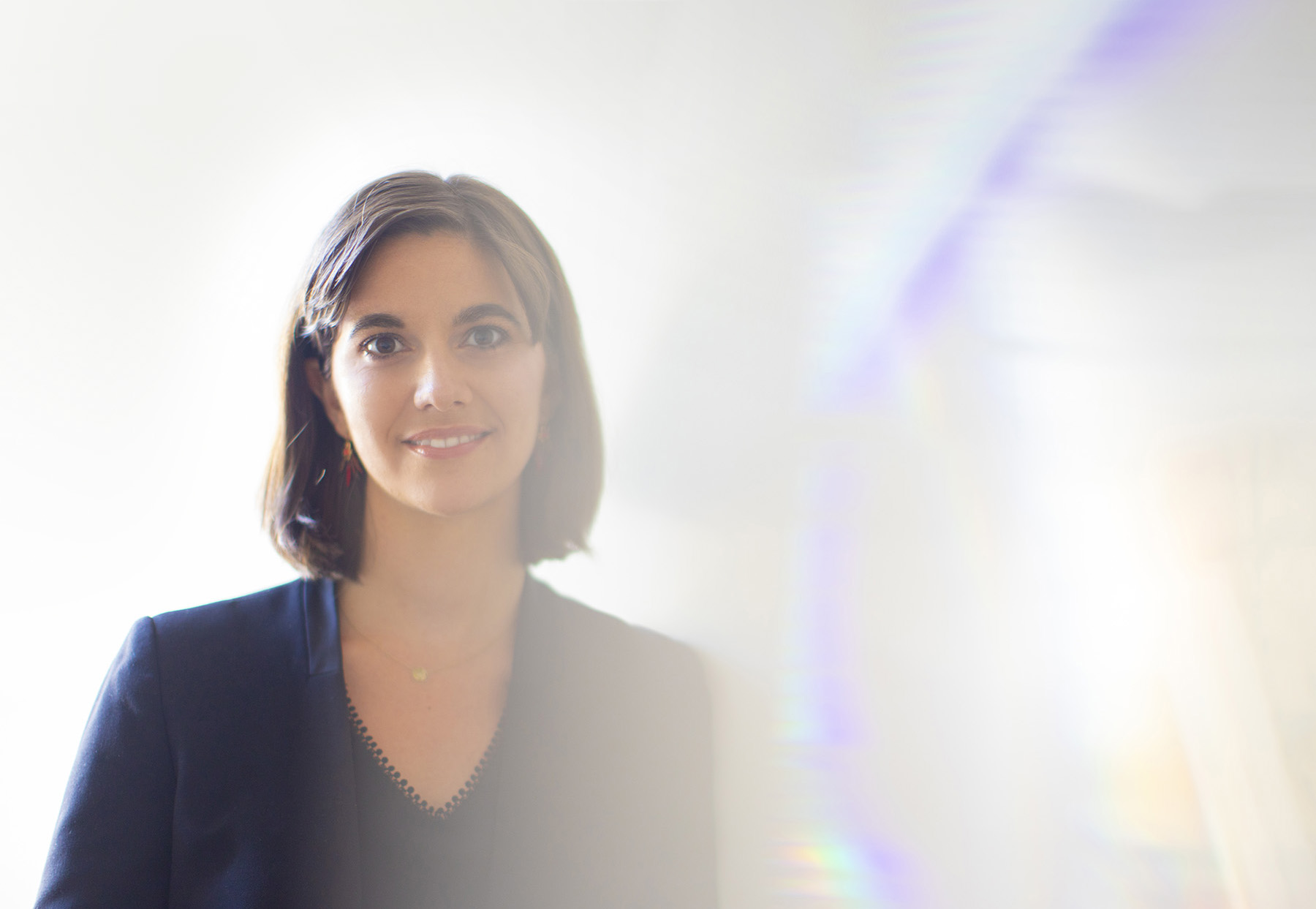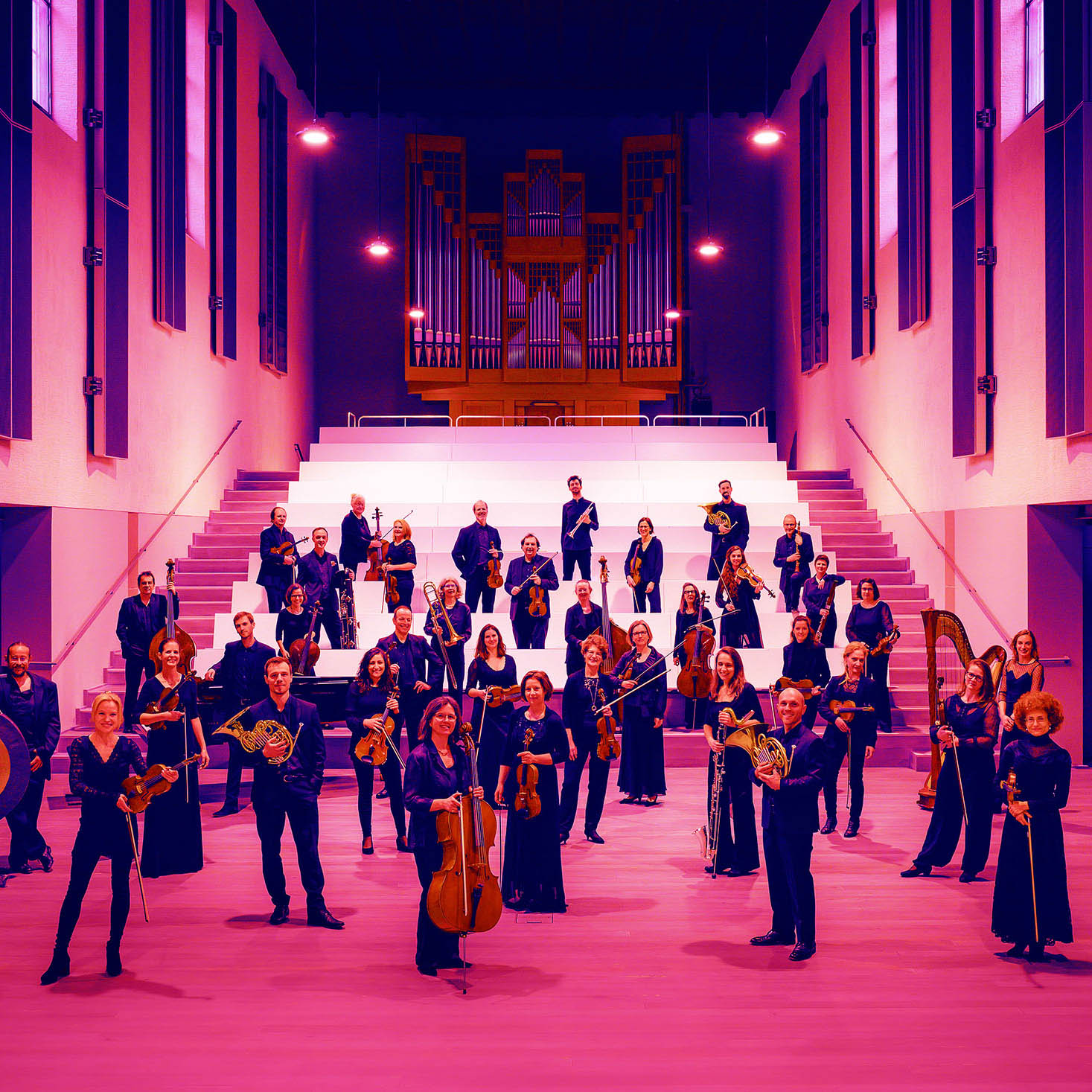On April 7, we present "Ligeti in Africa" at our 4th subscription concert an Stadtcasino Basel, with works by Lukas and György Ligeti and Hanna Kendall. The concert, in which African pop meets European contemporary orchestral music, will be conducted by Chloé Dufresne.
We are very much looking forward to this collaboration!
Chloé Dufresne has made a name for herself as a conductor with her clear technique, thoughtful guidance and broad color palette. Just three years after graduating from the Sibelius Academy in Helsinki, she can look back on prestigious prizes and engagements. As a comprehensively trained musician who also studied viola, singing and choral conducting, she has a broad range of skills. In addition to the core symphonic repertoire, she also devotes herself to new music and music theatre.
To get to know her and to understand her interest in contemporary music better, we asked her a few questions:
1. How did you first come into contact with "classical music" and why have you never been able to get away from it?
I don’t remember exactly my very first contact, but it was with the piano around 5. After that I started piano lessons. But the real love started around 8. I began playing viola at the conservatory and singing in the children choir at the Opera House in Montpellier (south of France). I sang at the opera for 12 years! The opera world and the stage made me fall in love with music, voice is the closest instrument we have, the phrasing and the vibration are so natural! I became fascinated by conductors and playing music together with other people.
2. You not only studied conducting, but also choir conducting, singing and viola. Given this broad background, why are you particularly interested in contemporary music?
Contemporary music, as opera, requires to work with other artists in a collaborative way, and exploring every aspect of the concert experience, I enjoy working with creative personalities as composers, stage directors... Every music have been contemporary at first, I really think it is our role as artists to support creation and live with our time. It is a very free area to open our mind and develop as humans.
3. Your engagements are very varied: classical or contemporary repertoire, concert or opera. Does your approach to different genres and eras differ?
Yes, I like the diversity of my work as conductor! I always approach the pieces I conduct with open mind and try to find the message, the spirit and the emotions we want to achieve for the performance. Then, every project is different, and I adjust my work towards the goal!
4. If you had not become a conductor or a musician at all, what would it be?
I know since I am 10 that I want to be a musician. But imparting knowledge is very important to me, so I would have become a teacher at school, pedagogy can be very creative too!
5. The Basel Sinfonietta has made it its mission to perform "music at the pulse of time" and to participate in social discourse with its programs. How can our ears make us wonder and reflect?
Arts in general must guide us to reflection. Every artist has a message or a conviction to share. Music can be very powerful in that sense. It is a universal language, no words are needed to play or share music with someone, it is one of the field where the most different cultures collaborate with the common interest to share and create beauty. Vibrations and emotions reach easily our individual sensitivity.








